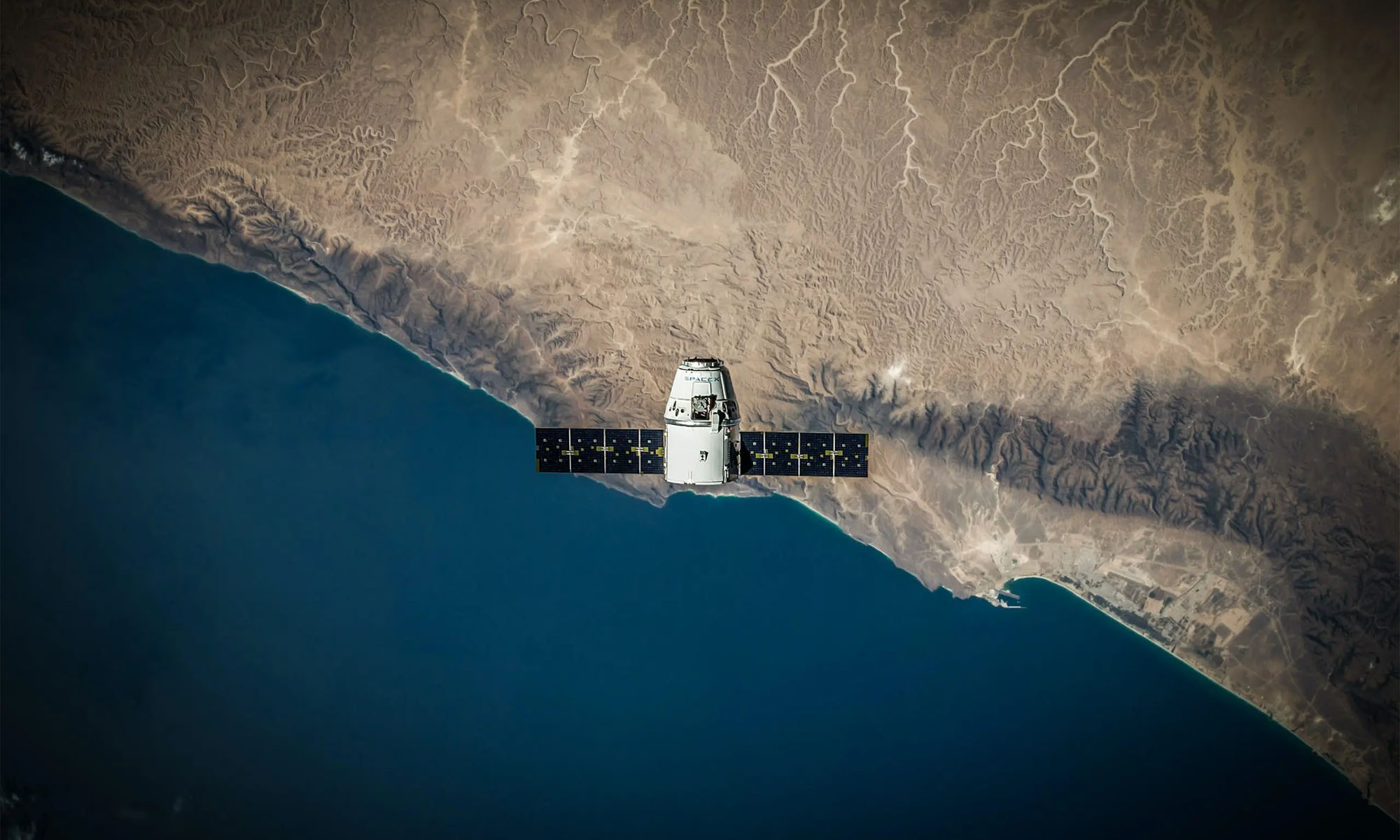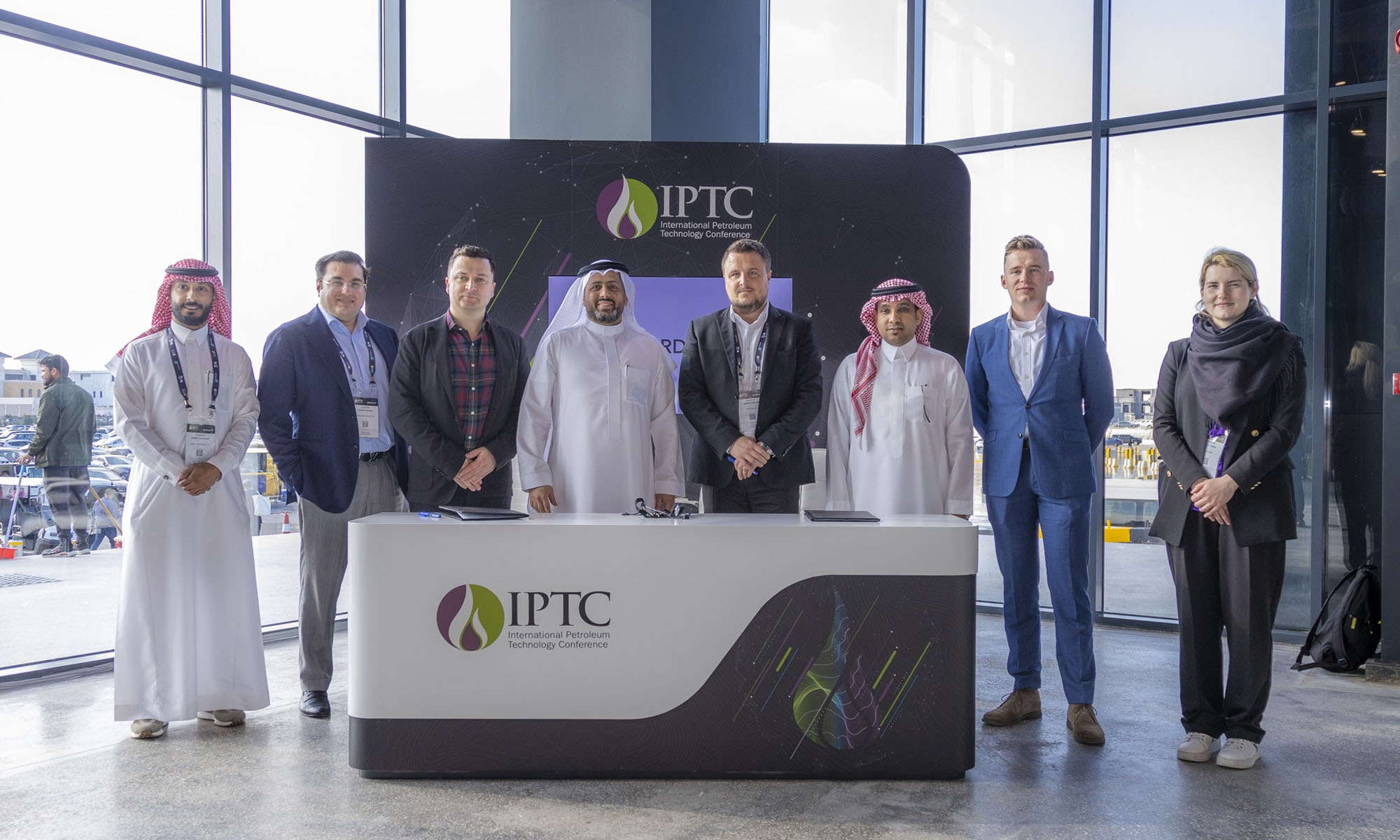News
Saudi Arabia Launches SpaceGuardian, An AI Satellite Imagery Project
Front End, a Saudi investment and development entity, will collaborate with SpaceKnow, a space-tech firm from New York.

As part of its efforts to build a modern, tech-focused economy, Saudi Arabia is delving into AI-powered satellite image analysis. The latest project involves a collaboration between Front End, a Saudi Arabian investment and development entity, and SpaceKnow, a space technology firm headquartered in New York. The collaboration has led to the establishment of SpaceGuardian, a project that will harness SpaceKnow’s exclusive AI-enabled analytical engine for contextualizing satellite imaging.

The agreement was formalized between Majid Alghaslan, Chairman and CEO of Front End, and Jerry Javornicky, CEO and co-founder of SpaceKnow, during the recent International Petroleum Technology Conference (IPTC) 2024, held in Dhahran.
The location of the meeting is significant, as satellite imaging has already proved invaluable for capturing multi-dimensional snapshots of the country’s Ghawar oil field, helping to forecast the future viability of the lucrative natural resources in the area.
Pioneering the field of satellite AI imagery, SpaceGuardian will offer real-time geospatial analysis of the country utilizing machine learning. Javornicky envisions that the project will “revolutionize the AI-driven geospatial market [via SpaceGuardian] commencing with carbon sequestration, security, and infrastructure surveillance”.
AI-driven satellite imagery spans a diverse range of applications, offering insights into the effectiveness of environmental initiatives and guiding economic policies based on space-derived data. Majid describes this partnership as “embracing innovation and progress that will propel Saudi Arabia into a new era of digital transformation”.
Also Read: UAE’s Yahsat Introduces Smartphone-To-Satellite Connectivity
In a departure from its traditional reliance on oil revenues, the Saudi Arabian government has been ramping up efforts to steer the economy towards a digital future. Both Artificial intelligence and space technology seem to be of keen interest to the Kingdom, alongside major urban planning projects and sustainable infrastructure upgrades.
Front End’s Majid Alghaslan underscores that “[SpaceGuardian] contributes to the development of the burgeoning space sector and supports the establishment of a robust space agency in Saudi Arabia. With a comprehensive suite of services catering to all industries and sectors”.
In total, Saudi Arabia’s move into the AI space sector is expected to usher in over $5.3 billion in investments by 2030.
News
Mamo Completes $3.4M Funding Round To Enhance Fintech Services
The startup will use the influx of cash to expand into Saudi Arabia and across the wider GCC while improving its product offering.

UAE-based fintech Mamo has announced the completion of a $3.4 million funding round that will help the startup extend its market presence and improve its product offering. Investors included 4DX Ventures, the Dubai Future District Fund and Cyfr Capital.
Mamo’s platform offers “payment collection, corporate cards and expense management” to help small and medium-sized businesses consolidate and streamline their operations. With the latest influx of capital, Mamo will further develop its comprehensive suite of services and begin testing its product lines in Saudi Arabia, further extending its footprint across the GCC.
Imad Gharazeddine, co-founder and CEO of Mamo, stated: “We’ve been in the market for a while now and are incredibly proud of what our team has achieved. The holistic and expansive nature of our product offering has helped us continue to grow sustainably. This additional funding will allow us to reach our medium-term goals even faster. The support from new and existing investors is a testament to our strong expertise and the ability to deliver on our customer promise”.
Daniel Marlo, General Partner of lead investor 4DX Ventures, added: “We have immense trust in Imad’s vision, leadership and Mamo’s innovative approach to provide a user-friendly and comprehensive financial solution for SMEs that makes financial management more accessible and efficient. We are proud to partner with them and support their mission”.
Also Read: A Guide To Digital Payment Methods In The Middle East
Amer Fatayer, Managing Director of Dubai Future District Fund’s investment team, also commented: “Mamo’s localized product lines serve as an infrastructure for SME payments and spend management in UAE, a segment that is underserved by the country’s current banking infrastructure. The team has taken a product-first approach to consolidating SMEs’ financial journeys and building a fintech solution deeply embedded in a business’s core operations”.
To date, Mamo has raised around $13 million in investment funding and now boasts a team of 30 people. The company’s intuitive financial services platform has allowed over 1,000 businesses to consolidate their financial operations and significantly reduce payment fees.
-

 News4 weeks ago
News4 weeks agoAmazon Prime Day 2024: Get Ready For 6 Days Of Amazing Deals
-

 News4 weeks ago
News4 weeks agoSamsung Unpacked 2024: What To Expect From The July 10 Event
-

 News4 weeks ago
News4 weeks agoCoursera Report Shows Surge In UAE Interest In AI Upskilling
-

 News4 weeks ago
News4 weeks agoMeet Dubai’s Groundbreaking Smart Robot Delivery Assistant
















